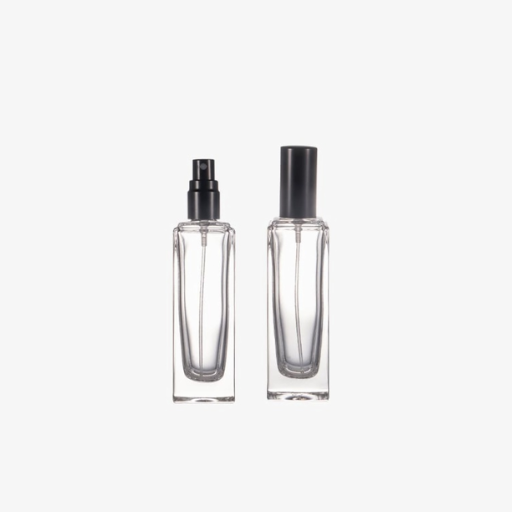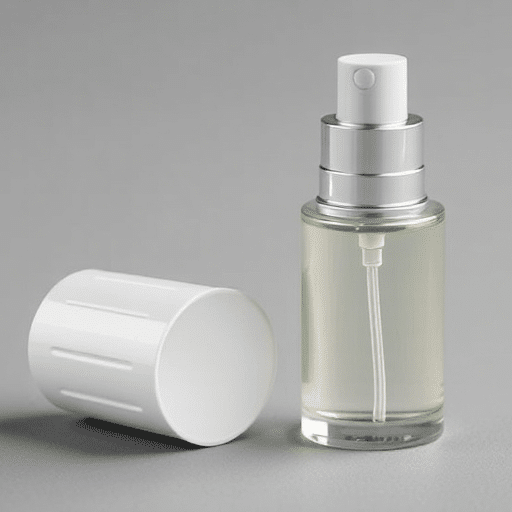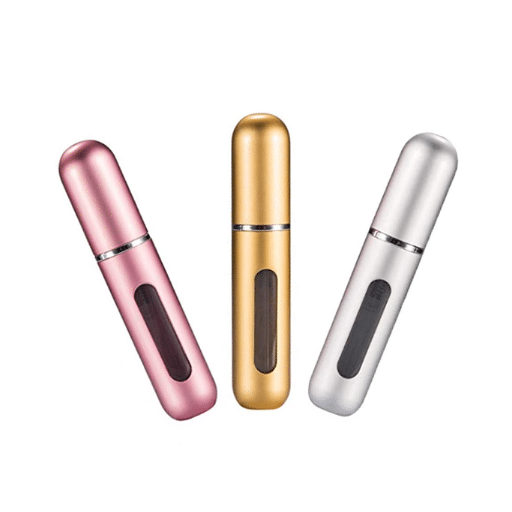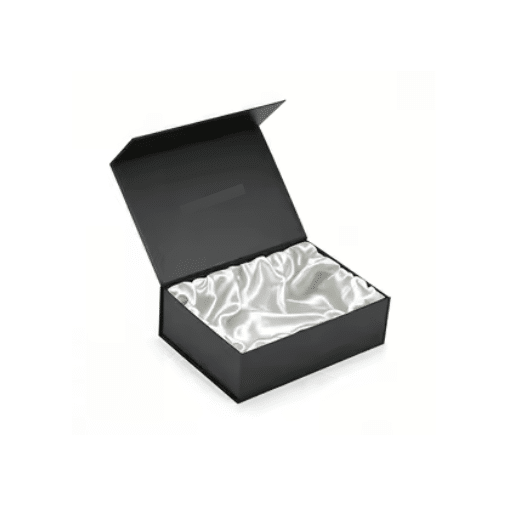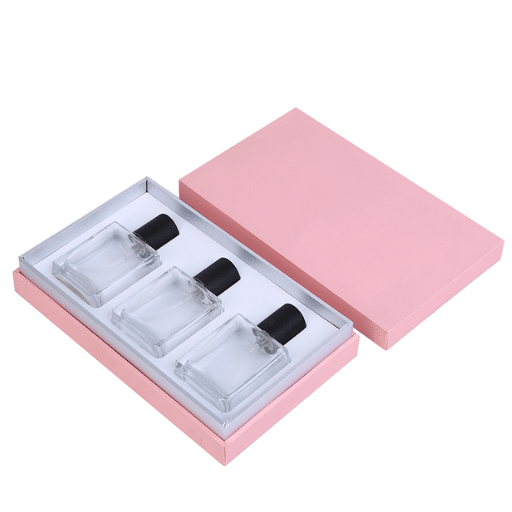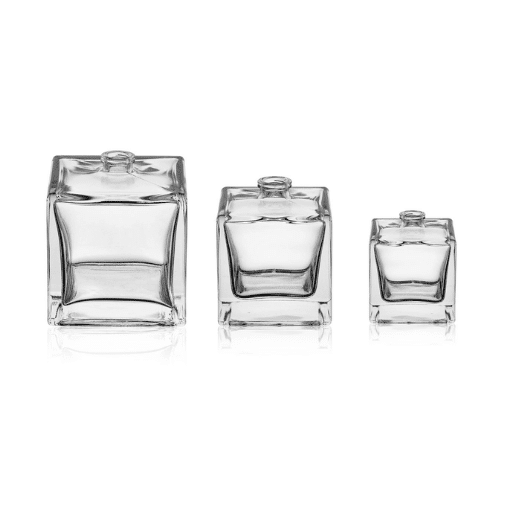The fragrance industry is a market worth billions that is always ready to welcome new entrepreneurs carrying innovative ideas. Have you ever entertained the idea of starting your own perfume line but found it too challenging because of the long process and the high cost involved, such as production, branding, and distribution? White label manufacturing becomes your savior as you can still get it at a low price and quickly, aside from the fact that you do not need to put up a manufacturing infrastructure. This manual is what you will need to get along with the whole idea of white label manufacturing for perfumes. Let’s check out the portion, the different aspects, and the ways one can make use of it to be able to come up with a brand that is not only very different from the rest but also one that can easily attract the target market. Whether you are a small retailer who wants to offer a wide range of products or an aspiring entrepreneur who has a plan to establish a signature fragrance brand, this guide will provide you with all the stages of making a new company. Stand by to experience your long-time dream of owning a personalized perfume label come true!
Understanding Private Label Perfume
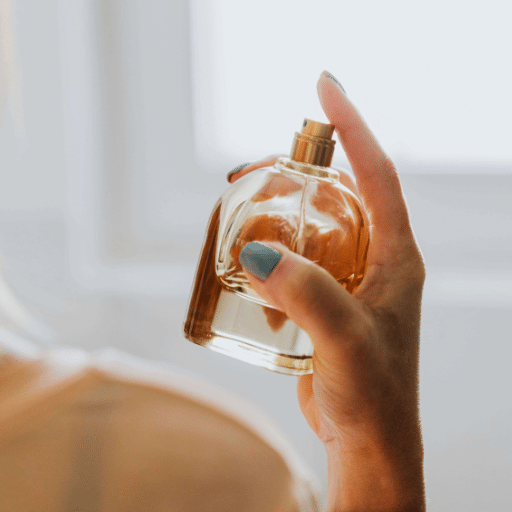
Private label perfume means that a manufacturer produces a product, but you are the one who brands it and sells it with your very own unique label. This is a way for businesses to have their own perfume brands without the necessity of working in the production or formulation sections. It is said that one of the significant advantages is that it’s more cost-effective to come up with the brand and the new product than to start from scratch with one already existing. Customizing the scent, the packaging, and your branding will be possible, making them all fit with the target group you are aiming for and will also be in line with your brand identity. Private label perfume is a fully controlled presence on the market of the fragrance industry, as it opens up the possibility to sell such products that are closest to the feelings of the customers.
What is Private Label Perfume?
When a company is into private label perfume, it is a practice of working with the best manufacturers to either create the best custom scents or the most scents in their brand, which are called private labels. Being close to this method, the firms that do not have their production plants can have the advantage that they do not have to produce the goods in-house. The creation of a new scent, the design of the product, as well as its packaging, and developing the brand represented by the product bearing the company title, is an inclusive part of the process. This business model has found customers’ favor in the beauty and wellness industry because it is not as restrictive and cost-effective as its by-products. In the beauty and wellness industry, this model has become remarkably popular. Trends depicted in the last decade have shown that buyers prefer smaller, more expressive brands that provide customization and a niche market. Brands wanting to attract customers in a market where everyone is vying for customers should take this private label perfume opportunity and make it their unique selling point.
Benefits of Private Labeling in the Fragrance Industry
💰 Cost Efficiency
Private label manufacturing can significantly reduce the cost of production and product development. A brand can easily skip the whole process of carrying out in-depth research and development, because manufacturers usually have custom formulas available to use and modify. Based on the information provided in the reports, private label products can cut the production costs by up to 30% for companies as compared to creating a product from the beginning.
🎨 Brand Customization
Private labeling is one of the main ways companies can have a uniquely identified brand that is consumer-oriented. By working through the details of the development, like designing a one-of-a-kind fragrance, a package that is one and only, etc., businesses can be sure that their products resonate with their brand. Consumer research indicates that 70% of buyers prefer personalized and made-to-order goods; hence, tailor-made fragrances enjoy a higher market value.
⚡ Faster Time-to-Market
Private Label, with the established systems of production and the availability of the standard formulations, shaves off the time required to introduce a product to the market. This is a very important factor in the perfume industry where styles change fast. A lot of private label manufacturers have crossed up their operations; they have so tightened up the process that one can be on the market with their product in as little as 6-8 weeks, the same time it took for independent production, be it months or even years in some cases.
🛡️ Lower Risk
Private Labeling, also from a financial perspective, means less risk because the production and formula errors are taken care of by experienced third-party manufacturers. Furthermore, companies that one joins forces with are already equipped with the know-how and science, and are more than a few steps ahead in such matters, which is excellent as they will be producing good quality products. Hence, customers will buy and trust the brand, in the end.
📈 Scalability
Having private label manufacturers as your partners does help in rhythmically increasing or, similarly, minimizing the production activity, but this totally depends on the market’s buying power. When in low demand, companies can shrink their workforce and even go to a simple 3-day working week. Besides, or on the other hand, the whole is continually increasing the operations by utilizing new equipments and hiring more employees.
🎯 Appealing to Niche Markets
Through private labeling, brands are empowered to serve smaller customer groups, for instance, vegan, green, or high-end individuals. With increasingly strong signals of a growing appetite for niche goods—an estimated 40% of younger shoppers are in the habit of looking for eco-friendly and fair trade items—brands can respond and supply accordingly by means of private labeling.
Key Terms in Private Label Perfume Manufacturing
Fragrance Oil
Fragrance oils are highly concentrated aromatic ingredients that provide the base of any type of perfume. These oils are carefully put together in the most perfected way to make the perfume identify itself with its unique scent profile.
Ethanol
Ethanol has a crucial position in the spirits of perfumery as a solvent. It does the job of adding the fragrance oils and increasing the perfume’s scenting power, which appears when it is applied to the skin. The use of high-grade ethanol is a must as it guarantees a fragrance that is both clean and long-lasting.
Perfume Concentration
This, in layman’s terms, is the proportion of perfume oils to alcoholic or aqueous medium in a fragrance. The usual kinds of this process are Eau de Parfum (EDP), Eau de Toilette (EDT), and Eau de Cologne (EDC), with EDP usually containing the highest level of scent components and therefore producing the most persistent scents.
Sustainability
The currently very trendy topic of sustainability in the perfume sector refers to the responsible sourcing of ingredients, the possibility of recycling the packaging, and the drop of the carbon footprint of the production methods due to less energy consumption, coming to perfume manufacturing.
Custom Packaging
The creation of a brand’s packaging is crucial for its perfume production, as it is a reflection of the brand. There are many options for packages of different shapes, sizes, and designs so that the product can be immediately recognized among others on the market.
Regulatory Compliance
It is a must for perfume manufacturers to follow rules and laws that oversee the making of cosmetics and fragrance products. These are the necessary steps, like safe ingredient assessments, proper labelling, and attaining international standards, that are essential for the quality of the product and the safety of the consumer.
Choosing the Right Private Label Perfume Manufacturer
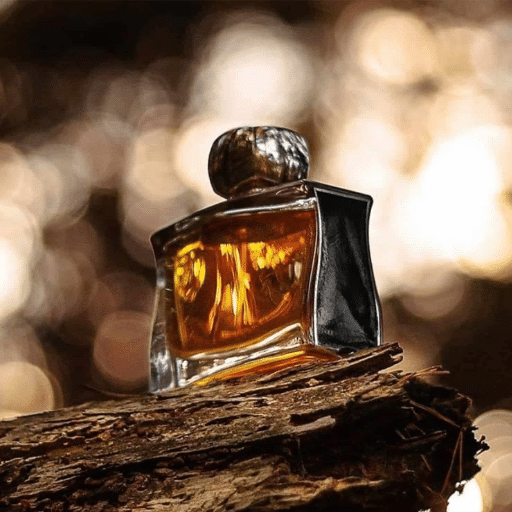
Selecting the private label perfume manufacturer requires the manufacturer to have the right quality assurance and fit your brand. Famous factors to be considered include the following:
- Experience and Expertise: The chosen manufacturer must be well-versed in the perfume industry and have been so for a long time. This means that the company has to be an expert in a particular area of fragrance production and use, like the brand and scent that you want to make.
- Customization Options: It is essential that the customization of styling, i.e., the scent, packaging, and labeling, is to the fullest extent and all matches the branding requirements.
- Production Capacity: Please make sure that the manufacturer can accommodate the production volume and meet the deadlines without any quality loss.
- Compliance with Regulations: Pick the partner who is aware of all the industry regulations, resulting in your products that meet safety and labeling standards.
- Transparency and Communication: Engage with a manufacturer who can communicate well and has an open cost, production process, and timeline policy.
- Reputation and References: Check ratings, get testimonials, and analyze their standing in the industry to make sure the deal is reputable and safe.
Top Private Label Perfume Manufacturers
Alpha Aromatics
Alpha Aromatics serves as a benchmark in the perfume industry, being the powerhouse behind the development of tailor-made fragrances specifically for each brand. Their long-standing history and the same support you get in quality form a basis on which they build the businesses to the smell of the future, at the same time providing private labeling as an option. The company’s wide knowledge and experience in fragrance development, along with its high-tech manufacturing facilities, translate into the top preference for private labeling.
Paloma Perfume
With their original way of doing things, Paloma Perfume offers a full suite of white label services, thus from custom formulation to packaging design and marketing strategy support. They are serving the needs of start-ups as well as already established brands, therefore allowing for scalability and production numbers.
Royal Aroma
Royal Aroma, being one of the leading companies in the cosmetic industry, has a wide variety of best-class perfume oils and, at the same time, a very green-minded approach to it all. The personalization steps are so interactive that the customers, the company, and the developers all take part in the “cooking” process of the scents. Fair trade sourcing refers to the good old traditional way of doing things, and green practices refer to the present and the future of the industry, thus underlining the powerful standing of the company in the sector with all these practices.
Scent Lab International
The Scent Lab International is all about the niche and the high-end. They are the masters in creating the discrete, sophisticated, and lavish scents for the private label, and they always sell with passion. For this, they start the journey with the basics: most often, this means selecting the highest quality natural ingredients from everywhere in the world, and then enabling the brands to boast of the finest-made perfumes.
Bell Flavors & Fragrances
Bell Flavors & Fragrances is a worldwide leader in the manufacturing of a wide range of scents. They provide the whole range of services under their private label, from fragrance development and packaging to large-scale production, with markets like personal care and high-grade perfume as their targets.
Requesting Quotes from Manufacturers
It is essential to provide complete and detailed information about your requirements for accurate quotes when you are trying to get quotes from companies that make perfumes. You should ask them to quote, e.g., the product like eau de parfum, body mist, or the perfume made of oil. Tell them about the fragrance characteristics that you want, the number of goods, the way you wish to package them, and if there are any specific certificates, e.g., cruelty-free, or materials made from plants or organic materials that are needed. At the same time, find out how long it takes to make the product for your company, how the product can be personalized, and also the smallest number of merchandise that the company can supply.
Comparison of quotes from many vendors is a must-do for an educated choice. Having no hidden costs will be a big plus, and the manufacturer will inform you of any extra budget you need for developing, testing, and shipping the product. Besides, there will be some that might make you a sample, and it is always good to check this out first before placing a big order. You can also check the companies’ background and customer service reputation before deciding which one will be the best to work with. A thorough comparison is the way to go if you want to be sure that your choice of a manufacturer is not only favorable to your budget but also to your brand’s vision.
Customizing Your Perfume Bottles
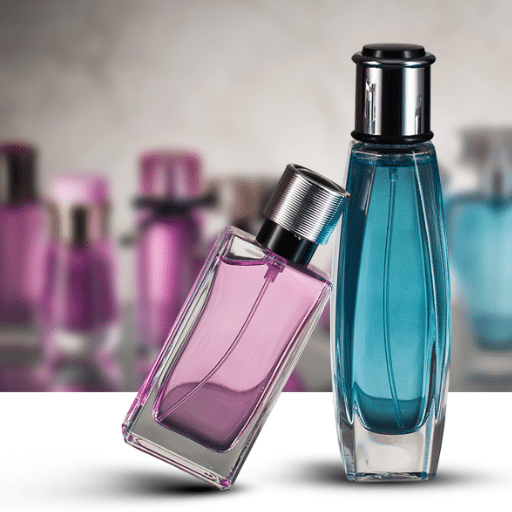
Personalizing your perfume bottles offers a chance to establish an exclusive brand identity. I would say the first thing to do is choose a bottle design that matches the appearance of your brand as well as the buyer persona. Moreover, specific characteristics like frosted glass, metallic inlays, and matte coatings can be added if you want something apart from the rest. Engraving designs or custom labels are another possibility where you can very subtly convey all the necessary information—brand logo, fragrance name, etc. Make sure you look for a manufacturer who can offer both flexible design services and the possibility to confirm that your bottle specifications are met in terms of both functionality and creativity.
Choosing Bottle Materials and Styles
Selecting the materials for the perfume bottle is very important, and a proper balance between the durability, the look, and the eco-friendly impact has to be found. Today, glass is still the best-suited material option for perfume bottles because of the luxurious appeal it carries, the recycling feature, and the ability to keep perfumes as they were made. Nevertheless, in recent years, technological developments have made it very feasible, and this has become an increasingly good option in the lightweight and environmentally friendly category.
At the same time, the identification of the brand and the target audience should also be taken into account when designs are to be brought in. A brand can be associated with sleek and simple shapes that reflect a sense of modernity and effusiveness. In contrast, complex and detailed designs bring a traditional and luxurious feel to the fragrance. On the other hand, by rounding up the product as recyclable, and by keeping in mind the established standards of the environmentally friendly procedures, companies may turn the negativity of the consumer interests into positive factors. All in all, a perfect cocktail of materials forms the best perfume bottle for a particular product, time to market, and quality of the materials, as well as the manner in which the brand addresses consumer needs.
Cap Design Options for Perfume Bottles
The perfume bottle cap design is one of the factors that determine user experience and the beauty of the product. Several choices are available, like the minimalistic caps made of metal or smooth resin that look stylish and modern. On the contrary, glass or crystal caps with detailed work will give a more luxurious touch, and the artistically minded high-end clientele frequently will be their buyers. Magnets in the caps have become common for their benefits – the opening and closing are easy, and the solution is, at the same time, a very smart and stylish one.
Sustainability has made its presence felt in the design of bottle caps by the usage of eco-friendly materials like bamboo, recycled plastics, and degradable alternatives. In addition, there is a growing trend of using caps that have been turned into decorative objects – e.g., caps that are in the shape of a bottle top – which combine art with function and ultimately increase the item’s marketability. Moreover, looking at different mixes and patterns of materials, companies are not only able to keep up with but also set themselves apart from the consumers’ current tastes, and in doing so, make the caps a very easily identifiable attribute of the company.
Manufacturing Process for Private Label Perfume
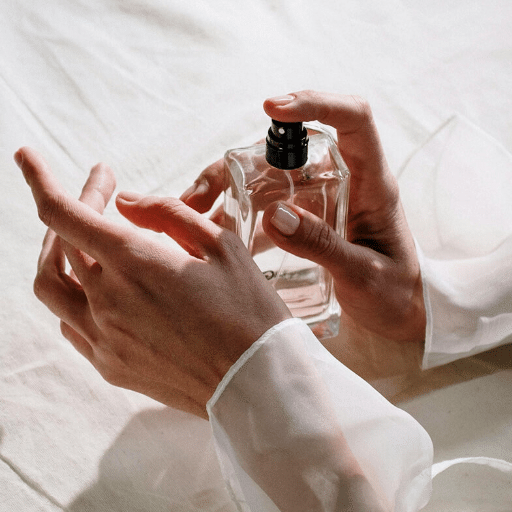
Concept and Fragrance Development
The process starts by identifying the desired scent profile, target group, and brand concept. When working with a professional perfumer or fragrance house, the resulting formula is made of good quality and is unique and tailored to the brand’s vision.
Sourcing Ingredients
The scent is based on well-selected high-quality essential oils, aroma compounds, and alcohol, to be used in the perfume. Such ingredients must comply with the necessary safety and regulatory standards, depending on the market in which they are to be distributed.
Formulation and Testing
The formulation of the fragrance is weighted in exact proportions. After that, the scent is tested for its stability over time and under different atmospheric conditions to preserve the same scent throughout the product’s life span.
Bottle and Packaging Design
The following steps are to have custom bottles and packaging that are in line with the brand’s identity. The choice of materials and designs is done very carefully to keep the balance between look, usability, and greenness for all the products introduced and the brand’s image as a whole.
Production and Filling
A batch of perfume is prepared, filtered for purity, and then filled in chosen bottles with the help of automated filling systems so that the entire process is carried out perfectly and with the highest rate of hygiene.
Labeling and Quality Control
Bottles are identified through the application of branding, regulatory information, and batch numbers. Product quality assurance is very stringent to make sure the product satisfies the standards of the industry.
Distribution
The marketing practices are done in such a way that the final products are then sent to the stores and online retailers, or even directly to the customers, depending on the sales model.
Quality Control in Perfume Manufacturing
A very crucial period of the perfume manufacturing process is quality control, which is tasked with ensuring that each product complies with very high standards for safety, uniformity, and perfection. The first step involves the examination of semi-finished products for purity, allergens, and compliance with industry regulations. The use of powerful tools is everyday in modern laboratories, such as gas chromatography and mass spectrometry, which identify and verify the presence of compounds, as well as the quality of oil and other ingredients.
After that, during production, parts of the product are constantly taken and compared for the scent, concentration, and longevity. The final product is subjected to sensory examinations, which are done by specially trained persons who ensure that the fragrance profile is in harmony with the original formulation. Besides, the batch numbers are registered extremely carefully and, thus, they can be used for tracing back and accountability. These actions not only stimulate but also enhance the brand’s reputation for providing high-quality perfumes.
Bulk Production vs. Minimum Order Requirements
| Key Parameter | Bulk Production | Minimum Order Requirements |
|---|---|---|
| Quantity Produced | Large-scale manufacturing | Limited to minimum specified quantity |
| Cost Per Unit | Generally lower due to economies of scale | Typically higher due to smaller quantities |
| Manufacturing Lead Time | Longer due to extensive production runs | Shorter depending on order size |
| Customization Flexibility | Limited customization options | Higher flexibility for specific requests |
| Storage Requirements | Requires significant storage space | Minimal storage needs |
| Upfront Investment | Higher due to volume of production | Lower upfront costs |
| Supplier Preference | Preferred by large-scale operations | Suitable for small businesses or startups |
| Scalability | Ideal for scaling business operations | Limited scalability options |
| Risk Level | Higher risk if demand is uncertain | Lower risk for testing market response |
| Environmental Impact | Greater impact due to large production | Relatively smaller environmental footprint |
Marketing Your Private Label Perfume
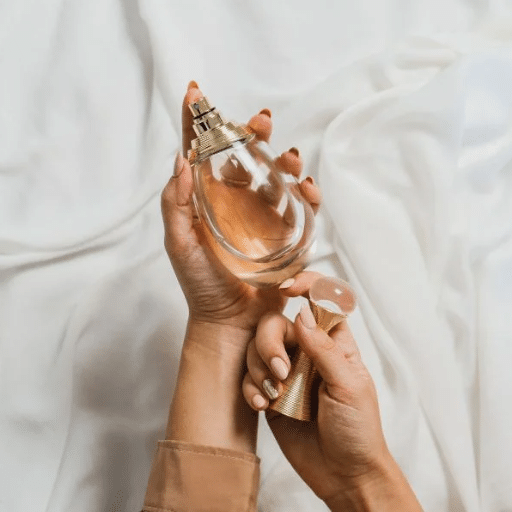
To market your private label fragrance most efficiently, make sure to prioritize the process of developing a solid brand identification that would be appealing to the group of people you want to reach the most. Initially, define your customer—look at aspects like where they live, their favorite things to do and buy, and finally, the way they make their purchases—and after that, try and keep your pitch in harmony with what they hold close to heart and what they really want. Powerful storytelling is a great tool to point out the peculiarities of your perfume, such as the ingredients it is made of, the work put into it, or the fact that it is environmentally friendly.
Unify various platforms to connect with your customer base in every possible way, e.g., by making use of social media, entering into agreements with influencers, and sending emails with carbon copies to customers. Visual aids, such as wonderfully-shot pictures and videos, are particularly successful in the case of the beauty sector, where the product must be seen as attractive. Moreover, think about having samples of or running promotions for your product for a limited period of time to provoke the public into trying it and give the sales figures a boost. These strategies form the basis of creating trust and getting a permanent loyal clientele over time.
Strategies for Promoting Your Brand
Data is playing a key role in designing promotion strategies that are likely to be efficient, and they must be taken into account. When companies scrutinize trends and market demands as well as the behavior of customers, they can spot chances of improving their marketing strategy. Audience segmentation, along with keyword analysis, is an example of the tools that can be used for sending out messages to a particular segment. Therefore, the content that is being distributed is in close affinity with demographics. Moreover, by watching the ratios of the engagement, clicks, and sales, it becomes obvious what actions have the most significant impacts and what strategies might not be so profitable. Feeding the data into the promotional drive makes decision-making wise and puts your brand in a position where it can serve its audience better.
Leveraging Social Media for Perfume Sales
Social media platforms as a perfume advertising tool can’t be underrated and the least important. Businesses can now, in fact, find out what’s being liked, scent, and perfume notes of the moment with the help of a mixture of the prediction of trends and search data. As an example, user behavior and interests breaking down on all the major social networks will help marketers create spot-on campaigns that will bring out these trends, and also, in the process, will reach the right audience at the right time. Interactive features, such as polls and scent personality quizzes, on the one hand, keep users busy, while on the other hand, they can collect the customer preferences that are priceless. Videos and other impactful, visually attractive materials showing how the perfume goes along with different lives and moods can not only keep the followers captivated but also indirectly boost the product’s popularity. Besides, user-generated content, reviews, or working with influencers will give additional trust and integrity to the product as well as the brand, and are equally essential points in today’s competitive fragrance market. Using these strategies, companies can effectively use social media to boost sales and also to enhance their position in the perfume industry.
Building Customer Loyalty in the Fragrance Market
The fragrance market’s highest priority is the ability to form unwavering customer loyalty, which comes with an approach of intense up-to-date consumer tastes and behavior understanding. The loyalty of the brand can be lengthened more by giving personalized services, which could be through suggesting that the customer chooses fragrances that are tailored to their preferences or offering them a membership that allows them to see new collections in advance. Additionally, providing open and honest information about what the ingredients are and how they are sourced not only helps to build trust but also is a good fit with the current environmental concerns of consumers.
As per the stats, loyalty programs that offer not only to give but also to receive something in the form of rewards, free samples, or some discounts, maintain customers at a very high level. Further, having the customer’s attention and playing the long game, which includes regular emails, social media frequent replies, and rare event invites to the customers, will all lead to the feeling of a community within the network of customers. It is absolutely doable for the brands to win over customers over a long period of time and have them as the most loyal customers if they incorporate the above strategies with the knowledge of market shifts.
Reference Sources
Gender Fluidity as Luxury in Perfume Packaging
Summary: This article explores how luxury perfume brands are incorporating gender fluidity into their packaging and marketing. It argues that while gender fluidity is presented as a form of luxury, it often commodifies the concept rather than genuinely challenging traditional gender norms.
White Label Fragrances: Struggles of Small Business in Botswana
Summary: This case study examines a niche luxury brand in Botswana that uses indigenous materials to create African-inspired fragrances. It discusses the brand’s challenges, including sustainability efforts and market expansion, and provides strategic recommendations for global growth.
Frequently Asked Questions (FAQs)
What are private label perfume bottles?
Customizable perfume bottles under private label are the containers that are typically used to contain the fragrances produced exclusively for and under one brand. It is an excellent opportunity for a business to build its own name in the industry and to compete with the competition. Customization can be as diverse as the imagination goes: from unique designs to personalized sizes and finally to label solutions which mirror the brand’s vision. All in all, to have perfumers and packaging both owned by the brand is another way of getting more distinguished in the market. One of the benefits of such a scenario is the material used, which gives the product a luxury and very exclusive feel, while at the same time, the right materials used and the outer package created make it look very up-to-date and attractive to consumers.
How does the manufacturing process work for custom perfume bottles?
Custom perfume bottles are made starting with their design and the formulation of the fragrance, which is done in collaboration between the brand and the perfumers, who are the experts, and the concept. And when the perfume’s smell is finally completed, the bottle is next crafted, with the consideration being the size, the shape, and the design of the label. The bottles will then be filled only with exclusive fragrances that are gently poured. Generally, the whole production chain could be under the responsibility of one company, which virtually manages everything, starting from creation to delivery.
Can I request a quote for bulk orders of private-label perfume bottles?
Sure, it is possible to ask for bulk order quotes regarding the exclusive perfume bottles with your private label. A considerable number of manufacturers on the market will show up with beautiful price offers, if the quantity of the mentioned demand is big enough. When you ask for a quote, make sure you state the facts and different customization options that you prefer. The said data will eventually help the manufacturers give a proper estimate. Apart from that, asking for the minimum order quantity (MOQ) and production and delivery times over the phone or email is a good practice that will give you additional details to plan your e-commerce or retail business very well.
What is the significance of premium packaging in private label perfume?
The key to the triumph of a luxury own-brand perfume is premium packaging that dramatically changes the general public’s opinion about the product. Superior and niche-grade packaging of top quality can pull in clients and, at the same time, show off the luxurious and elegant side. It is a super-efficient way for any product to be recognized as different in a market that is already full of imitations and branding of a top-quality product. A customized perfume bottle with a design and a finish that is unique can be the start of a new brand for the user and the communication of the brand’s dedication to being outstanding.

